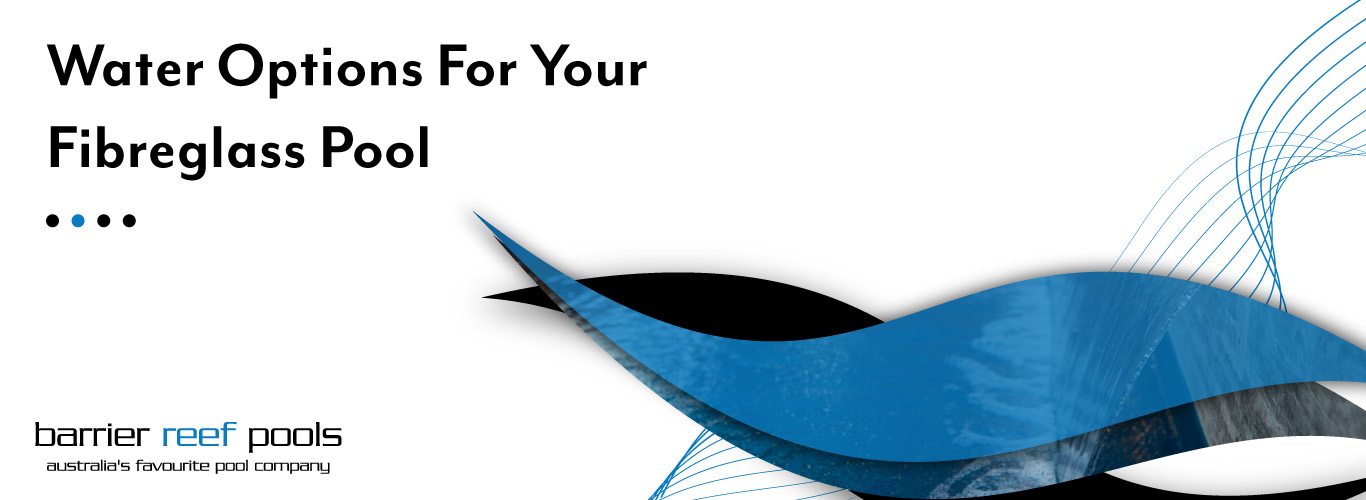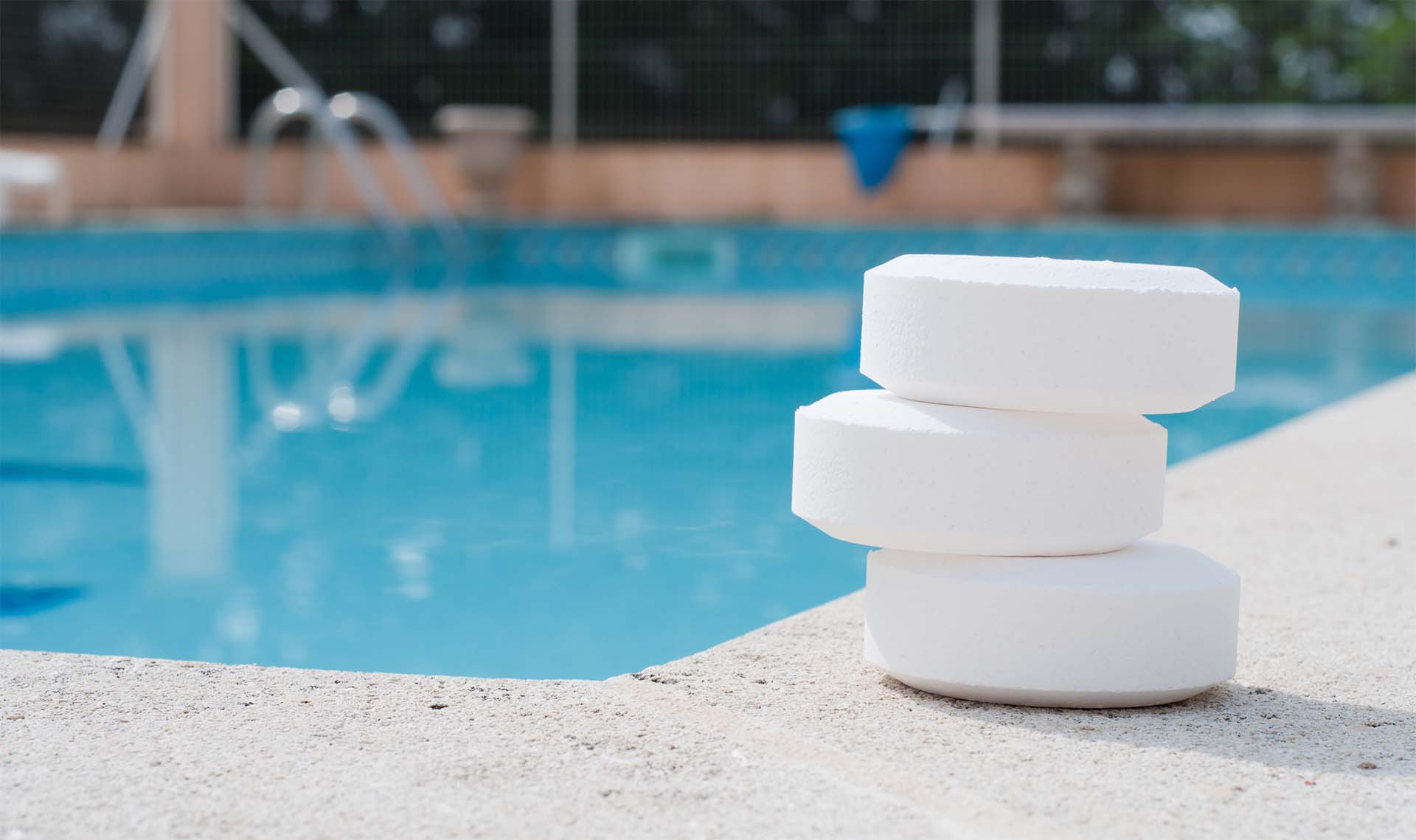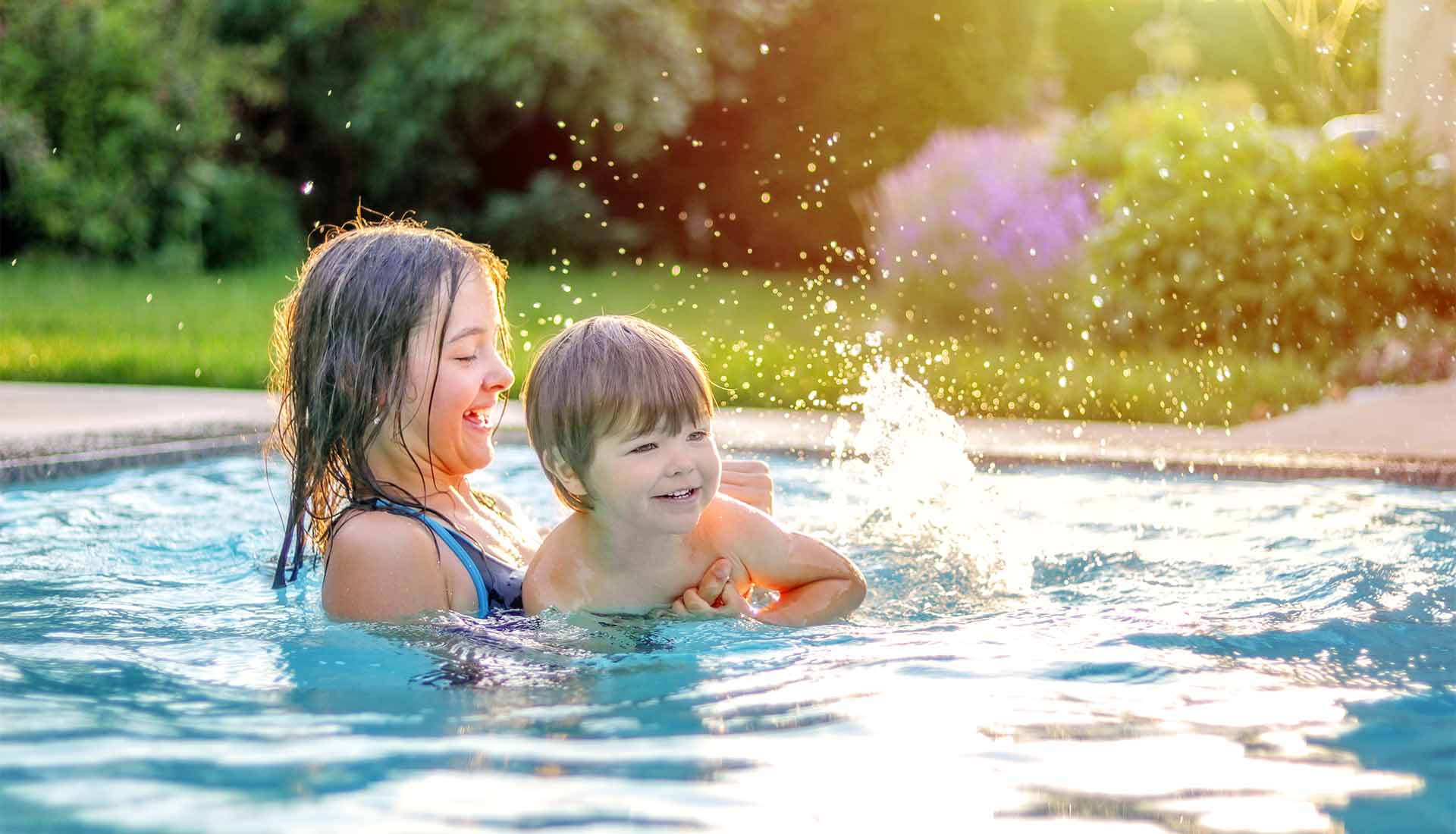Water Options For Your Fibreglass Pool
You have your pool installed and the only thing missing is the water. You are eager to fill it up and start using it but wait. You have spent so much time researching swimming pools and its related things that your patience is running thin.
This empty pool right now can be a source for your nightmares if you do not pay caution while selecting a water system for it. Traditionally, chlorine water has been used, but saltwater and mineral water are also two very viable options. Selecting one depends on where you are located, how the climate of the place is, and what is available in your area.
Experienced pool builders will be able to tell you which system would best work for your pool conditions. You can always consult people near you as to which water they are using.
Here are the three major types:

Chlorine
Chlorine water is the industry standard and everyone’s go-to solution for making water fit for a swimming pool. The main reason for this is that it is the fastest way of killing all the bacteria in the pool water. This is why many cleaning products have a lot of chlorine in them. For example, bleach also has a lot of chlorine in it, which helps in cleaning.
It keeps your pool water clean through a series of reactions that break down the cells in bacteria. Once the cells are broken, it renders the bacteria harmless, which makes chlorine a good choice for disinfection. You could sanitize your pool with bleach in theory, but practically, that will cost you a lot more.
Chlorine comes in a variety of forms and the cheapest of it being tablets. Chlorine tablets can be put in the pool and all you have to do is wait for some time for them to start working. Granular and liquid chlorine is also available but, more often than not, have their own ways of being used.
The method of delivery of chlorine is different between the three. If you do not add chlorine at regular intervals or as recommended, your pool can turn green easily. Chlorine happens to be the cheapest way of maintaining a pool water system. Other systems are efficient but expensive at the same time.
Chlorine Tablets
These slow but dissolvable tablets are a great and inexpensive way to add chlorine to your pool. Just put them in the chlorinator, and they will give a steady supply of chlorine over time.
There is no peaking of chlorine levels or dropping when the tablet is introduced or consumed by the pool. You will have to check the tablet from time to time, to ensure that the chlorinator has enough supply of chlorine. The tablets have a lower pH than your pool water, but the balance can be restored easily.

Granular Chlorine
As the name suggests, it is coarse and loose chlorine that is available in the market. To use it for your pool’s intended purposes, you will have to mix it in a bucket of water first. After it is mixed, you will have to gently pour it around the perimeter of your pool and the return jets.
This will cause the chlorine levels to spike in your pool, and we do not recommend using it at this time. As the water circulates, your chlorine levels will stabilize too. You will have to take extra precautions while chlorinating your pool with granular chlorine. The level of chlorine does not drop steadily as some days are hotter than others. You will have to add chlorine as and when required. If your pool water starts turning green, you should add chlorine as soon as possible.
Liquid Chlorine
It is popular because it can be directly added to the pool without any preparation. It is pre-mixed from the factory and can immediately start working as a cleaning agent as soon as you put it in the pool. Since it is pre-packaged in its liquid form, it is harder to store. It also takes a lot of space and for the same price, you can buy a lot more chlorine tablets or granular chlorine. You will have to store it in a big barrel and is usually very corrosive in nature. Its pH is also on the higher side of the scale and it causes a spike in the levels of chlorine when it is added.
Salt Water
They do not have a very high concentration of salt and do not mimic the properties of ocean water but are a great alternative to chlorine. Chlorine is harsh on your skin and is irritating for your eyes too.
In saltwater water systems, salts are added to the water, which reacts differently with the organic matter in the pool. These salts break down any bacteria present in the pool. This does not mean the salts do not contain chlorine. Quite the contrary, the salt also has chlorine in them.
One of the main benefits of a saltwater pool is that the water is a lot softer. It is less damaging to your body and does not cause irritation. You will have to make only a few adjustments to the salt levels as they have a tendency to recycle themselves. You should get a sacrificial anode in your saltwater system to counter the corrosiveness of the water.
All the nearby metals will be corroded by the saltwater, it is only a matter of time. But you can slow this down with an anode. It is a zinc tube that reacts with various salts and keeps the metals around the pool safe. It typically lasts for 3 years before you need to replace it.

Mineral Water
A chlorine-free alternative that has gained popularity in recent times is the mineral water system. People who use it swear by the quality of the water and how soft it gets. Many describe swimming in it as moving in silk. It also gives the water a smooth texture and none of the side effects of chlorine.
It also happens to be the cheapest alternative to the other two options. You will have a low cost of installation and will only have to replace the mineral pack regularly.
The other parts of your pool will benefit immensely from such a system because the water is not as harsh as the other two variants. Your pool and all the tech involved will last a lot longer with mineral water as it is not very corrosive in nature.
Mineral water pools have seen a spike in popularity in recent times. They are getting a great response from people who have been using it for some time and people with sensitive skin have also switched to saltwater. They have the softest water and also extend the life of the pool and its various parts.
Whatever types of water you choose to go ahead with, make sure you look at all the pros and cons of the different types. Make an informed decision with all the information you have and also take into account your own budget and needs. Ask you the nearby pool owners what kind of pool system they are using will get a good idea of what is suitable for your area.
